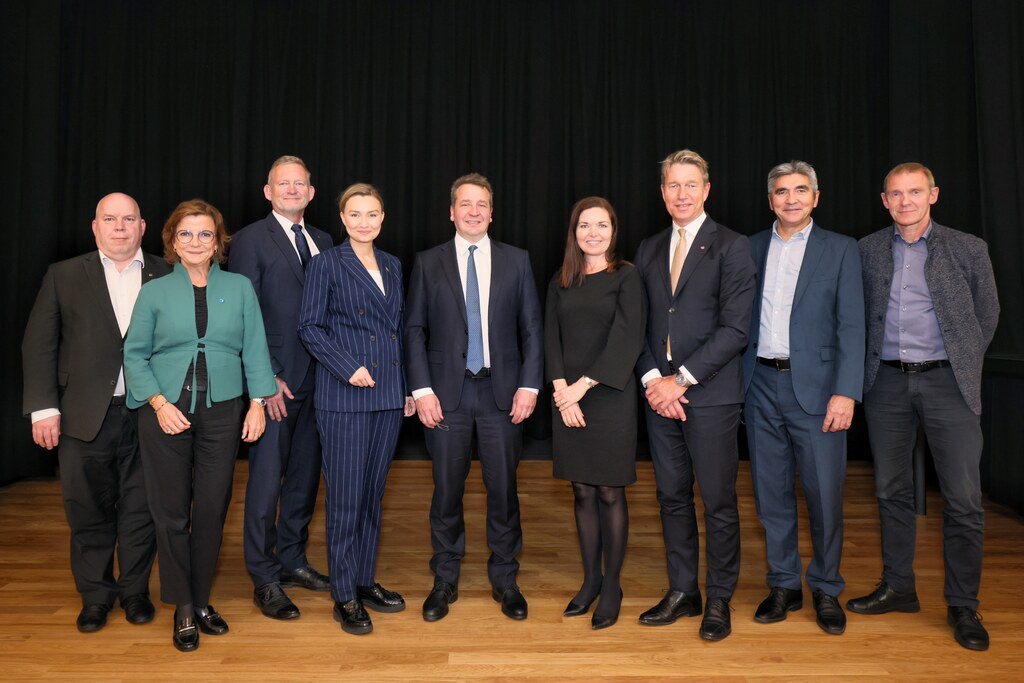
New declaration by the Nordic energy ministers
On 18 October, the Nordic energy ministers gathered to discuss current challenges and potential solutions for a secure energy supply. The meeting was held in Reykjavík, as Iceland holds this…
On 18 October, the Nordic energy ministers gathered to discuss current challenges and potential solutions for a secure energy supply. The meeting was held in Reykjavík, as Iceland holds this year’s Presidency of the Nordic Council of Ministers.
At the meeting, the ministers issued a new declaration laying out their ambitions for continued close cooperation, as it has proven its strength and importance in the face of recent crises. The prospects of further Nordic energy collaboration will also support the achievement of the Nordic Council of Ministers’ Vision 2030 of the Nordic Region being the most integrated and sustainable region in the world.
“By continuing to work together, the Nordic countries will be able to lead the way in new energy technologies and innovation on energy and the climate.”
– Guðlaugur Þór Þórðarson, the Icelandic Minister for the Environment, Energy and Climate

Photo by Sigurjon Ragnar
The ministers’ discussions centred on how to make use of the lessons learned during the recent past to improve supply and progress towards the green transition of the Nordic countries. Thereby, the crisis can act as a trigger for new developments that protect consumer interests at the same time as the transition. In this context, the cohesion of the Nordic region is vital.
The top priorities highlighted in the declaration are threefold:
- Security of supply
- Significant green transition
- Hydrogen and other new technologies
Security of supply
The geopolitical situation in the wake of the Russian invasion of Ukraine has underlined the importance of stable and affordable energy supplies. The security situation and subsequent energy shortages and savings have highlighted the strengths and weaknesses of the European electricity markets and energy systems. A well-functioning electricity market, improvements to energy efficiency, and flexible consumption will contribute to the security of supply. A joint project has been initiated to make sure that we learn from each other’s experiences.
Significant green transition
Another important factor for improving our security of supply is the energy transition. But this transition is not only essential for a secure energy supply, but also for achieving the Nordic countries’ ambitious climate goals. The many severe weather events in the summer of 2023 in the Nordic region and elsewhere have underlined the need for a significant green transition of our society. Consequently, the Nordic energy ministers want to expand the use of renewable sources such as solar, wind and hydro, combining them with geothermal, biomass and other more predictable means of generating electricity. They are particularly interested in the potential for offshore wind in the North Atlantic, the North Sea, the Baltic Sea and the Barents Sea.
Hydrogen and other new technologies
According to the energy ministers, together we have the critical mass needed in research and innovation to make the Nordic region a leader in the development of new technologies. They see a particularly good potential in Nordic cooperation on hydrogen and have initiated joint activities to support this position of strength. This hydrogen focus gives notable relevance to Nordic Energy Research’s Nordic Hydrogen Valleys as Energy Hubs programme.
The fact that it is impossible to electrify all energy consumption makes it important to work on hydrogen, ammonia, and electrofuels – new technologies that will facilitate the green transition in sectors difficult to electrify. In addition, the Nordic countries are well placed to use CSS to achieve negative carbon dioxide emissions.
